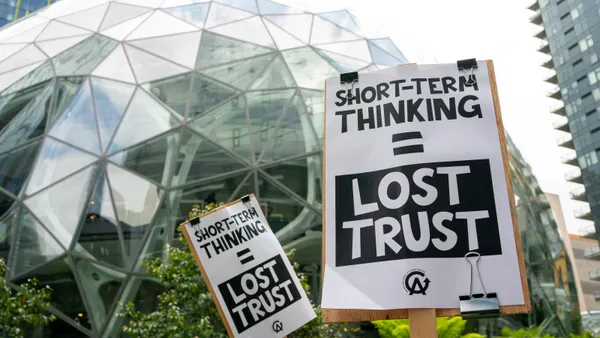ORLANDO, Fla. — Employees are stressed and so are managers.
Whether it stems from organizational upheaval, managing across teams with multiple moving parts or the chaos of mergers and acquisitions, more is expected from managers.
What’s a tech leader who wants to build, engage and encourage the workforce, to do?
While some want to debate the reason for the talent drought, few disagree that the pool is dwindling or that it's difficult to develop and retain valued workers.
HR departments and recruiting teams tell the C-suite employees want training. They want to be prepared for today’s job market and tomorrow’s.
Part of building a strong team, said Jaime Roca, senior vice president, Gartner, during a panel at Gartner IT Symposium/Xpo, lies in the type of managers charged with the development and enrichment of employees. Roca is the co-author "The Connector Manager — Why Some Leaders Build Exceptional Talent and Others Don’t."
A Gartner survey of 7,000 people asked how proficient they are in their current roles on a scale of 1-7, with 1 as the lowest and 7 as the highest degree of proficiency. The bulk of respondents, 70%, rated their skills between 1 and 5.
That means managers, already up against productivity goals, must find time and opportunities to upskill the people who report to them.
There are four basic types of manager, said Roca on Monday:
-
Teachers: Managers who develop employees' skills based on their expertise. Expect teachers to steer employee development on a track that matches their skills and experiences.
-
Cheerleaders: This style of manager takes a mostly hands off approach and offers very supportive feedback.
-
Always on: Opposite of hands off. This group provides feedback and coaching constantly.
-
Connectors: This is the ideal management style for developing talent. These leaders give feedback that aligns with their area of expertise. Where they stand out is in their ability to connect people who can offer strength in a variety of skills. Connectors join people on the same team, but can reach out to the broader organization or outside of the organization to match people who have complementary skills.
According to Roca, one of these types is toxic — and it likely isn’t the one most would guess.
To take the guesswork out of it, Gartner set up a quiz for managers and team leaders to figure out which type manager they are. Gartner research found the four manager types are consistent throughout companies and across industries.
Always on managers degrade employee performance. Teachers and cheerleaders can have a 7-9% positive impact on employee performance. But connectors can boost performance by 26%.
Roca laid out some connector characteristics and tactics:
- Get to know employees
- Coach the person, not the problem
- Build trust and solutions
- Identify the skill to be shared
- Know who would like to learn the skill











